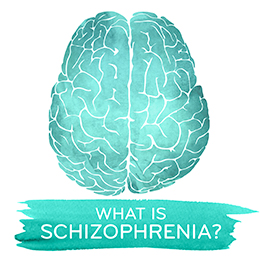What is Bipolar?
Bipolar Disorder
Transcript
What is Bipolar Disorder?
Bipolar Disorder, also known as manic depressive disorder, is a disorder of the brain which results in changes in mood and behavior.
A person with bipolar disorder experiences fluctuating periods of abnormally elevated expansive or irritable moods with periods of depression.
During a manic episode a person may experience a long period of feeling "high" with an overly happy or outgoing mood.
An episode of mania or hypomania (a less severe form of mania), may include a decreased need for sleep and an increase in goal directed activity.
During a manic or hypomanic episode, other behavioral changes are noticeable. For example, a person may talk fast or be more talkative. They may be easily distracted.
They may also engage in high risk activities, and demonstrate erratic and irresponsible behavior such as unrestrained buying sprees, sexual indiscretions, or foolish business investments.
Sometimes people with bipolar disorder may experience an unrealistic belief in their abilities.
Manic or hypomanic episodes may include inflated self-esteem or grandiosity and racing thoughts. A person with bipolar disorder may also think faster, feel smarter or more creative than usual.
Inappropriate behaviors during manic episodes may negatively impact relationships, work, and finances.
However, a manic episode can switch rapidly to a depressive episode.
During a depressive episode a person may experience periods of feeling sad or hopeless with a loss of interest in activities they once enjoyed. Patients with bipolar disorder are at an increased risk of suicide.
Behaviorally, they may show changes in sleeping, eating or other habits. Some people with bipolar disorder describe a sense of feeling "slowed down." People with depression may also have trouble with concentration and memory.
People with depression can also be easily distracted where their attention is drawn to unimportant or irrelevant stimuli.
There are two types of bipolar disorders – bipolar I and bipolar II.
Both are characterized by at least one major depressive episode. However, the manic episodes in Bipolar I are more severe in comparison to the hypomanic episodes typical of Bipolar II.
In Bipolar I, a person can cycle between episodes of mania and depression that can be separated by months to years. In Bipolar II, a person may experience periods of elevated mood but not always a full manic episode, referred to as hypomania or a mild manic episode. These mild manic episodes can sometimes be followed by a depressive episode. A person with Bipolar II typically spends more time in the depressive phase than a person with Bipolar I.
Currently, there is no cure for bipolar disorder. Although it is a lifelong illness, an important thing to remember about those suffering from bipolar disorder is that they can reach out to their treatment team to learn about ways to recognize symptoms and potential strategies to manage them.
Browse the videos on this site to hear stories from people living with mental illness and those who care for them.
If you or your loved one has symptoms of bipolar disorder, discuss an appropriate treatment plan with a healthcare professional.

Comments (2)
This is really good information and things I've been asking and wondering about to all my doctors I've been receiving help for 32 years and my depression I'm not sure if I'm depressed if it's depression or if it's boring my personality or bipolar I know I have schizophrenic and I'm just needing help to receive help I have five grandchildren all my children are over 30 I feel all alone I recently just been in two car wrecks my sister just passed away I got in a fight with my other sister and this is not my behavior I don't know why I'm behaving like this I don't ever go nowhere I stay in my house I just really need information and help thank you and thank you for having us so I can read it and listen God bless you
We're glad this is a good resource for you. :)
Add new comment